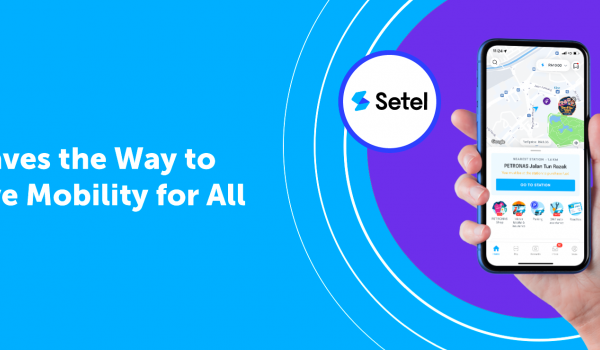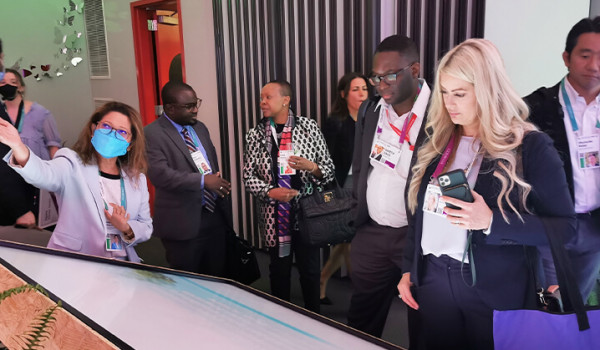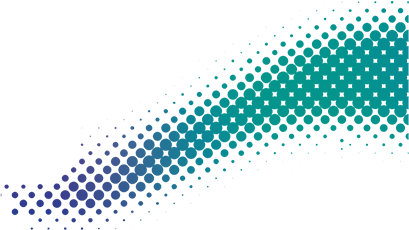Toxicology plays an important role throughout a chemical’s lifecycle, starting from the selection of raw material during the R&D stage to addressing the adverse impact of the hazardous chemicals and waste.
03/11/2020 • 6 mins read
Pioneering Toxicology in PETRONAS
FLOW in Conversation with Dr Salmaan Hussain Inayat Hussain.
Chai Li Tiing
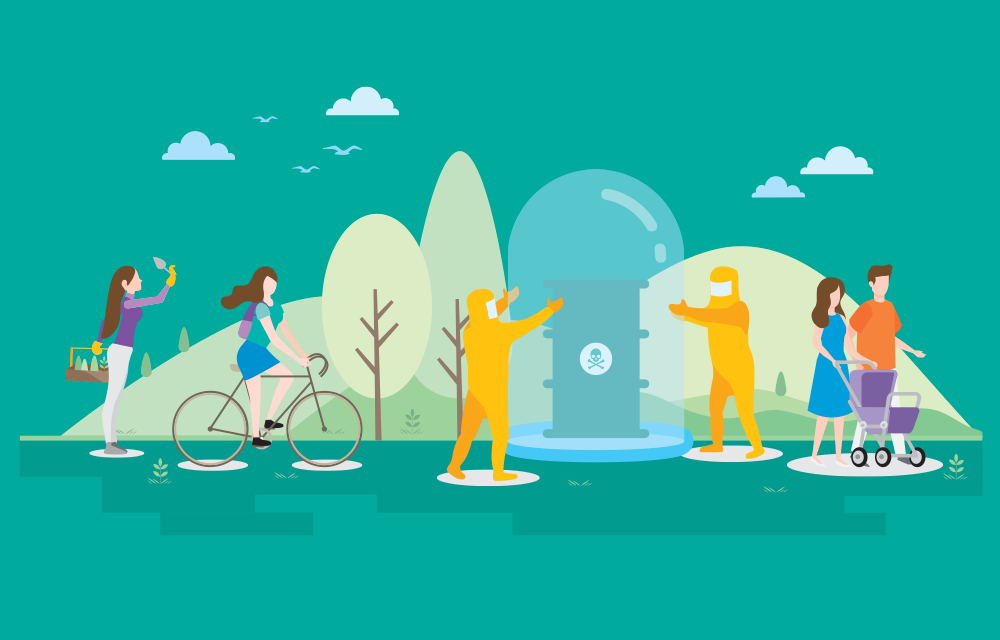
He is the pioneer of toxicology in PETRONAS, having set up the Product Stewardship and Toxicology Section which he has been in charge of for seven years.
But little is known of Dr Salmaan Hussain Inayat Hussain, and his breadth and depth of experience in this particular field until word got around of his appointment by the United Nations (UN) to the panel of the Joint Food and Agriculture Organization (FAO)-World Health Organization (WHO) Meeting on Pesticide Residue.
The appointment made him the first and only Malaysian toxicologist with that distinction.
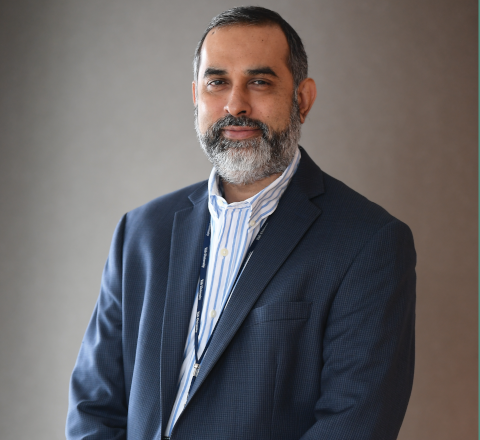
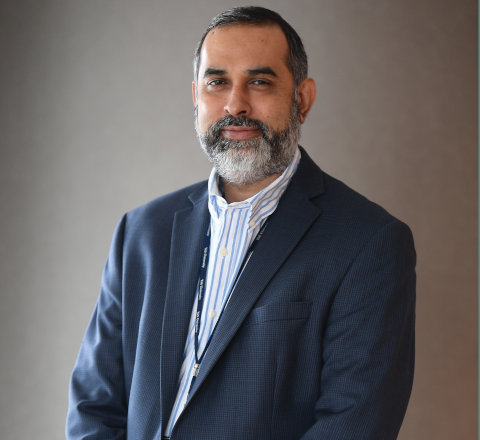
“Toxicology plays an important role throughout a chemical’s lifecycle, starting from the selection of raw material during the R&D stage to addressing the adverse impact of the hazardous chemicals and waste.”
Dr Salmaan Hussain Inayat Hussain
Beyond this, Dr Salmaan wears many hats: as an adjunct professor in the Department of Environmental Health at the School of Public Health, Yale University, Fellow of the Academy of Sciences Malaysia as well as the Chair of the 11th Congress of Toxicology in Developing Countries, slated to take place in June 2021. These are just some of the accomplishments that have been tagged to this Terengganu-born professional. FLOW gets up close and personal with Dr Salmaan to get to know the man behind such enormous duties and responsibilities, his inspirations, dreams and why he does what he does.
1. Have you always been interested in science?
Not really. I was seven when my father passed away and that was when I started to lose focus in school. I didn’t see myself as a “smart kid” like my brothers. You could say that I was quite naughty, too. I didn’t get good marks in my exams to the point that it became very frustrating. This all changed in secondary school, when we got more in depth with the sciences, and my interest in biology and chemistry grew.
I wanted to understand humans and all the things that happen in our body. I remember coming home from the doctors when I was sick and looking up all the ailments from my dad’s books. My father was a doctor, so we had many medical books at home. The abundance of books, combined with the efforts that the teachers put in to make the subject interesting was what drove me to want to learn more, and I eventually fell in love with the subject!
2. What set you on this path of toxicology?
When I was pursuing my degree in pharmacology at Universiti Kebangsaan Malaysia (National University of Malaysia), I took a course in toxicology, where I came across a quote from the Father of Toxicology, Paracelsus, who said, “All substances are poisons; there is none which is not a poison. The right dose differentiates a poison and a remedy.” Needless to say, I was hooked after that. It was fascinating to think that any substance can be helpful or harmful depending on the dosage. His quote really broadened my perspective on toxicology. Even in today’s world, that quote still holds true. It made me see how everything we make and consume somehow relates back to toxicology and inspired me to want to get involved in something that has such a big impact on people. An example that illustrates this best is Botox. While it is an extremely toxic bacterial toxin, it is currently widely used at a very low dose to reduce facial wrinkles.
"All substances are poisons; there is none which is not a poison. The right dose differentiates a poison and a remedy.” Father of Toxicology, Paracelsus
Of course, my path in toxicology is also greatly encouraged by inspiring lecturers and mentors, not to mention the opportunities that came my way. I had the opportunity to do my PhD at the Medical Research Council (MRC) Toxicology Unit at University of Leicester, where I was able to discuss toxicology and learn from others who are as enthusiastic about the subject as I was. I even got to do two sabbaticals at the University of Colorado, where one of the areas I studied was the effect of benzene on the human body. The complexities of the subject were endlessly fascinating for me and the opportunities that I had further paved the way for me on this path.
3. In recent decades, there is a growing demand for companies to be accountable for the contents of their products by an increasingly discerning consumer base. How has this affected the current landscape of toxicology?
We see a rapidly evolving landscape in toxicology, largely driven by changes in societal norms. There is an increasing demand by the public and regulators for safe and environmentally sound products, coupled with emerging regulations in key markets that compel companies to provide accurate and transparent data, including the disclosure of hazardous chemicals during operations or in products which could potentially cause health or environmental issues. This, and the abundance of information available on the internet and social media, all call for the accurate and unbiased disclosure from companies backed by scientific data.
In 2019, UN Environment Programme published the “Global Chemicals Outlook II” report highlighting the importance to strengthen the interface of chemicals and waste management and human rights. There is a quote from it that states
“The right to information is critical in the context of toxics.” I believe that this should be the key motivation for all toxicologists.
It is important for toxicologists to drive data to convey the right information to the public. More and more companies are appreciating the expertise of toxicologists, even if it is not very apparent to the public. Toxicologists are behind-the-scenes workers who ensure a company’s products and the activities they conduct are safe.


4. In the context of PETRONAS, how does toxicology contribute to its Sustainability Agenda and its journey?
PETRONAS has been on its sustainability journey for over 20 years. In 2019, PETRONAS prioritised seven out of the 17 UN Sustainable Development Goals (SDGs) to focus on, guided by the four lenses of Sustainability. Toxicology directly contributes to three key targets under the SDGs via many of our initiatives.
When I joined PETRONAS in February 2013 as a secondee and the Chief Toxicologist, we did not have a department. It was a one-man show. After doing some assessments on our global operations, I concluded that we needed to have more manpower to cover all the scopes and pioneered the Global Toxicology Department in 2014, as it was known back then.
Within a short six years, the department grew in scope and manpower, demonstrating PETRONAS’ commitment to sustainability. In 2018, we became the Product Stewardship and Toxicology Section, with twelve people currently covering Toxicology, Eco-Toxicology, Environmental Health, Product Risk Management and Product Stewardship.
PETRONAS took deliberate steps in expanding into these areas, not looking to just be regulatory-compliant but to go above and beyond to ensure that we protect our three P’s – People, Planet and Profit. We believe that if our products and processes are safe, then we can have a business that is sustainable – not only for our profit margins but also for our environment and communities.
The responsibilities of the section now cover assessments to understand the impact our facilities have on the surrounding community where we have our operations, tests to know the impact our products have on people and planet throughout its lifecycle, and even the due diligence when acquiring new assets. We collaborate with other departments in the group, as well as third parties for a neutral and unbiased view
on our results. We have been increasingly rigorous in our assessments and tests throughout our end-to-end value chain to create and add value. We also work in a transparent manner.


Some 30 of our reports on product risk assessments and about 500 product safety data sheets are available for public consumption on our PETRONAS SHIELD Safety Data Sheets (SDS) Search Portal.
Scan the QR code to go to PETRONAS SDS Search Portal website.
5. Could you share a bit about your experience being appointed by the United Nations to the expert panel of the Joint FAO/WHO Meeting on Pesticide Residue (JMPR)?
My first job with the UN came in 2007, when I was asked by the former Deputy Director-General, Ministry of Health, Malaysia to join WHO as a country representative to develop a tool for chemical risk assessment. This led to the publication of “The WHO Human Health Risk Assessment Toolkit: Chemical Hazards” which was published in 2010. I was rather nervous going into the project, questioning if I would be on the same level as these other experts. After interacting with these vastly experienced experts in the same field where I got to discuss and debate toxicology extensively, I have grown to like it and found that we harbour a lot of mutual respect within the community.
So, when an opening came up to join the expert panel for the JMPR, I seized it. I am honoured to be involved in something with such an impact, where the results of our deliberation on how much pesticide residue is safe for daily human consumption based on scientific data is applied in the UN member countries.
I take my role seriously as a Malaysian representative. When I am there, I feel a sense of national pride when I see my name on the placard next to the name of my country, alongside all these “big names” in toxicology from the US, Japan and the other European countries.
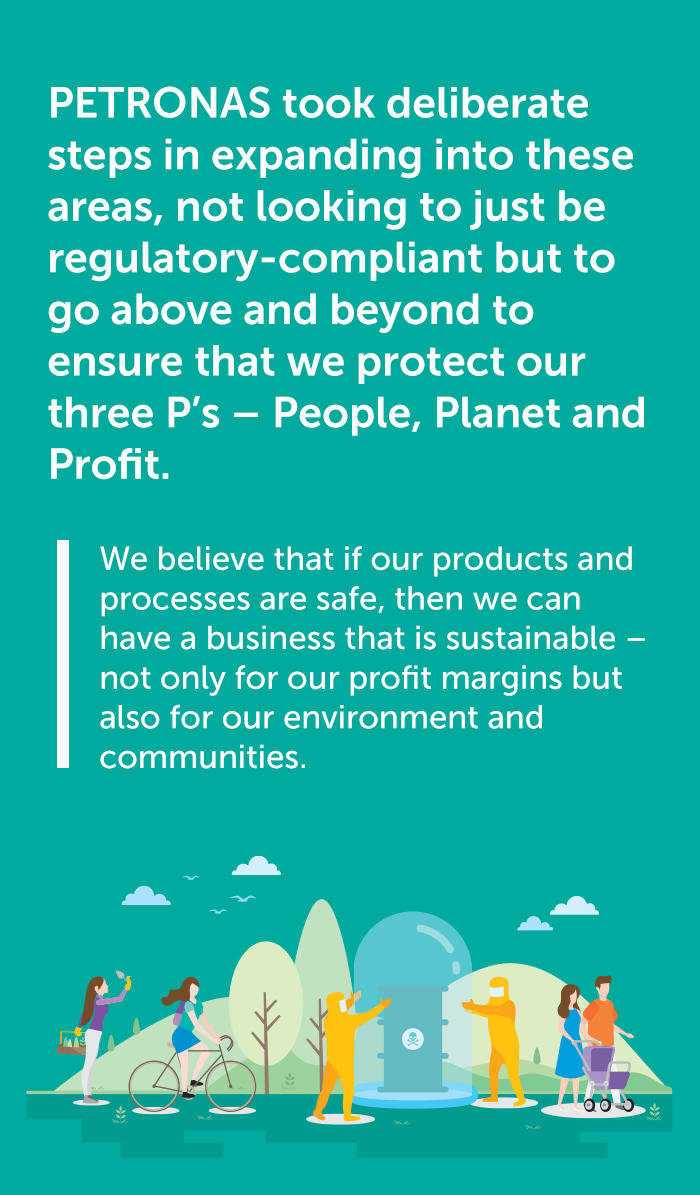
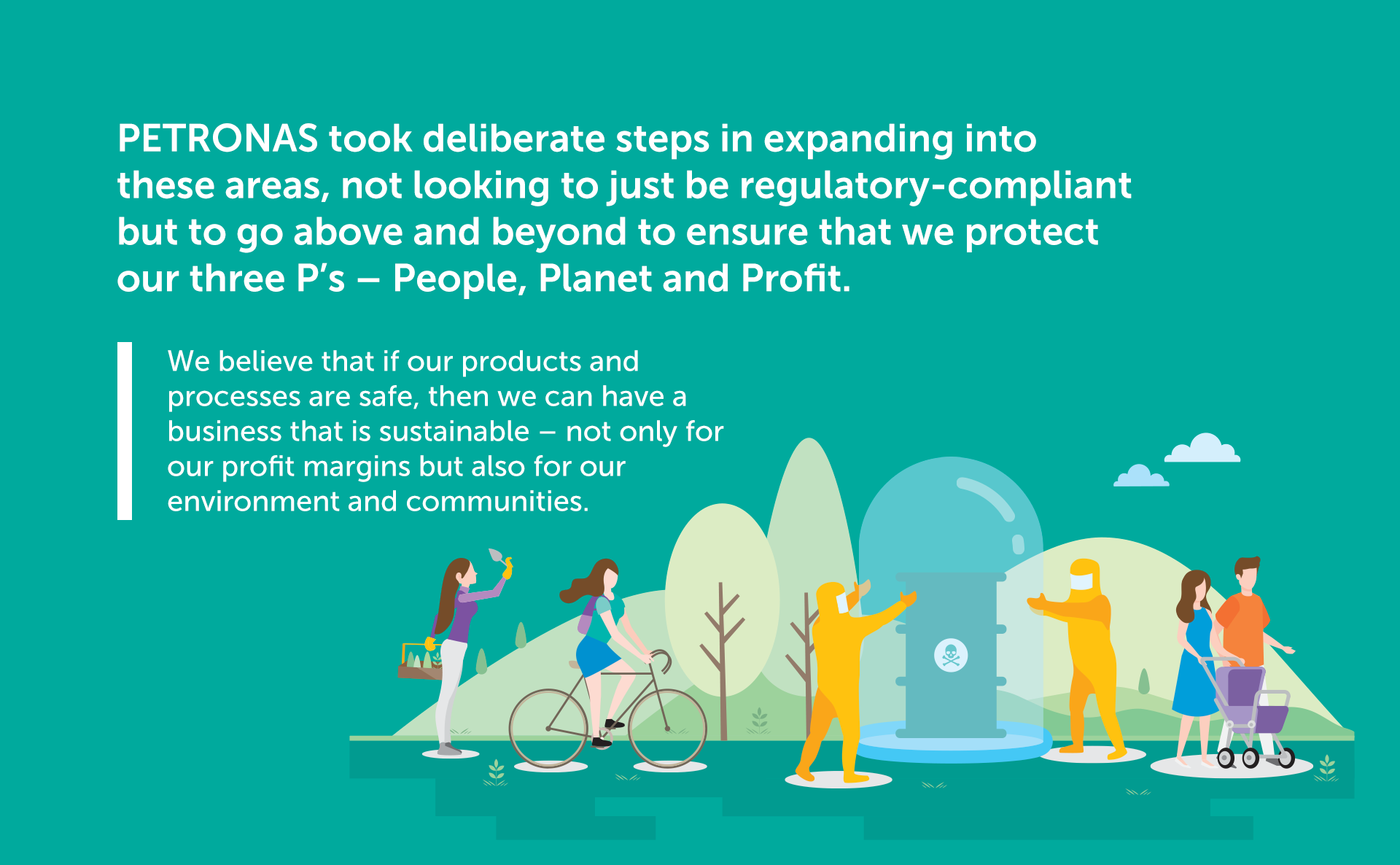
6. What is the coolest thing about your job?
When I hand out my business cards abroad, a question that invariably comes up is, “Do you work at the PETRONAS Twin Towers?” People get very excited about it. This instilled in me a sense of pride for my company and my country. So that’s cool.
But being a toxicologist is quite cool, too. I remember when I was at the Manchester airport when security was tightened post 9/11. The lady at the customs asked me what I did for a living. I answered truthfully and the lady gave me a very serious look. I was getting nervous that I might be questioned further for being a toxicologist.
She gave me a long, stern look and asked, “Is Warfarin really a rat poison?”
I breathed a sigh of relief and we shared a nice exchange about her husband’s intake of Warfarin before she let me go about my day. This reminded me that what I do for a living is very rare and interesting. This also once again perfectly illustrates Paracelsus’ quote that inspired my interest in toxicology, highlighting that it is the dose that makes the poison. In this case, a rat poison can also be used as an anticoagulant to help prevent blood clots
7. What is the biggest challenge you have faced in your career?
That would be when I was tasked to handle Product Stewardship, an area that I was not an expert in when I first joined PETRONAS. Having been a toxicologist all my working life, I was comfortable with that aspect of the job. I had the knowledge, the contacts and industry experience.
Product Stewardship was terra incognita for me and a huge responsibility covering the whole lifecycle of the products from research and development (R&D) to waste. Though I was no expert, I rose to the challenge and outlined what needed to be done.
I wanted to make an impact with my time in PETRONAS. After a lot of research, help from the businesses and guidance from the leaders, we developed a roadmap for the goals we wanted to achieve, and I am proud to say we are not far off from our targets that we set all those years ago.

"I have always wanted to leave a legacy behind, to do something that my children will be proud of and motivate them to do better. I believe that there is an amanah given to everyone. I have had the honour to pursue what I am good at and make it my profession, so I will do so to the best of my ability."
8. What kept you going in building your career to this level of success? Is there a key motivator in your life?
I have always wanted to leave a legacy behind, to do something that my children will be proud of and motivate them to do better. I believe that there is an amanah given to everyone. I have had the honour to pursue what I am good at and make it my profession, so I will do so to the best of my ability.
As the first toxicologist employed by PETRONAS and the pioneer of the department, I feel like I am doing something great for the company and the nation.
To me, being the founder of the Society of Toxicology in Malaysia, the first Malaysian toxicologist certified by the American Board of Toxicology and an adjunct professor at Yale, are opportunities that have encouraged me to continue moving science and the company forward.
I want to do things the way my father did it. Even though he passed away a long time ago, he left a lot of good behind. As a doctor, he treated a lot of patients who remember him, he was humble and kind. I am trying to emulate some of that, and I hope my kids will also follow suit.
9. What are some of the more memorable breakthroughs or discoveries that you have worked on?
In 2017, I had the opportunity to spend six months at the Yale School of Public Health as a Fulbright fellow, conducting a project on risk assessment of chemicals used in unconventional oil and gas production. When my proposal was approved, it faced some challenges from a faculty member who published a prior paper on the subject. My task was to enhance upon what was previously published, which I found to have some gaps and inconsistencies in the approximately 150 chemicals identified to cause reproductive health impact.
I invited the faculty member to work together to get the right information out there, pointing out the areas of my concern in the prior paper, it eventually became a great collaboration.
We managed to complete the paper by drawing information from the SHIELD database, did a data comparison from 11 countries’ regulatory databases to identify high priority chemicals which can inform exposure assessments and the use of safer alternatives.
This was an impactful and memorable project for me, as it was about identifying the inconsistent and inaccurate hazard information, subsequently using a strategic approach to correct that to protect human health in a transparent manner. The work was eventually published and a portion of it was also used in the PETRONAS 2018 Sustainability Report.
"Toxicology plays an important role throughout a chemical’s lifecycle, starting from the selection of raw material during the R&D stage to addressing the adverse impact of the hazardous chemicals and waste.
10. What do you think energy and petrochemical companies should do more when it comes to toxicology?
Toxicology plays an important role throughout a chemical’s lifecycle, starting from the selection of raw material during the R&D stage to addressing the adverse impact of the hazardous chemicals and waste. It is common knowledge that many chemicals today still have inadequate toxicity data. With the pressing needs of the society and regulatory requirements, more data on toxicity on human health and the environment need to be generated in a sustainable manner.
In the space of toxicity testing, there is a drive to reduce animal testing leading to more advanced non-animal alternative test methods to be used and developed.
Toxicology testing is no longer merely “nice to have” but a “must have” and these activities should start as early as in the design of new chemicals in the R&D stage. By doing so, energy and petrochemical companies can avoid greenwashing, such as claiming a product is “environmentally friendly” or safe but back the claim with evidence.
In the 21st century, toxicology plays a critical role in addressing human health and environmental risk assessment of chemical emissions from business operations. With the increasing allegations of pollutions from hazardous chemicals and waste, many companies are putting more efforts beyond compliance in addressing the risks from emissions either through air, groundwater or even from produced water.
These efforts are very much aligned with the SDGs especially SDG 3 (Good Health and Well-Being), SDG 12 (Responsible Consumption and Production) and SDG 14 (Life Below Water).




